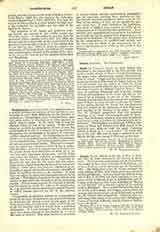

Conan, Saint, Bishop of the Isle of Man, d. January, 684; an Irish missionary, also known as Mochonna. He is not to be confounded with St. Conindrius, who is said to have been a disciple of St. Patrick, and to have lived to a very advanced age (November 17, 560). The Bollandists place St. Conan amongst the early bishops of Man, and Colgan gives an account of his life and labors. Unfortunately the history of the Isle of Man in the fifth and sixth centuries is very obscure, and it is difficult to get at definite facts, yet St. Conan, or Mochonna, who is also described as “Bishop of Inis-Patrick” left a distinct impress of his zeal for souls in Manxland. Some authorities give the date of his death as January 26, but Colgan, quoting from the ancient Irish martyrologies, gives January 13, on which day St. Conan’s feast is observed. There are also several minor Irish saints of the same name, including St. Conan of Assaroe (March 8), and St. Conan of Ballinamore (April 26).
W. H. GRATTAN-FLOOD,

